Indifference
Starring: Clive Brook, Frances Dee, Charles Ruggles, Gene Raymond, Lila Lee, Mary Boland, Adrianne Allen, Charley Grapewin, Helen Ware, Helen Jerome Eddy, Arthur Hohl, Billy Butts, Richard Carle, Bobby Barber, Frederick Burton, Wallis Clark, John Elliot, Paul Fix, Billy Franey, Otto Fries, Edward LeSaint, and Kent Taylor
Directed by: Stephen Roberts
Released by: Paramount Pictures
Runtime: 78 minutes
Release date: Almost inexplicably, September 17th, 1932
Availability
Made by Paramount in 1932, it is now owned by Universal. While the movie can be labeled as timely (rim shot), they have not seen fit to release it on home video and it must be found on pirate sites.
Proof That It’s Pre-Code
- Ol’ Grandpa is very focused on getting Prohibition repealed while the grumpy old ladies attend temperance meetings. He hangs out at the neighborhood speakeasy grumbling about it.
- One character commits suicide by gun. It’s rather drawn out and dramatic.
- Frances Dee hangs out in her lingerie for a shot just for the sake of it.
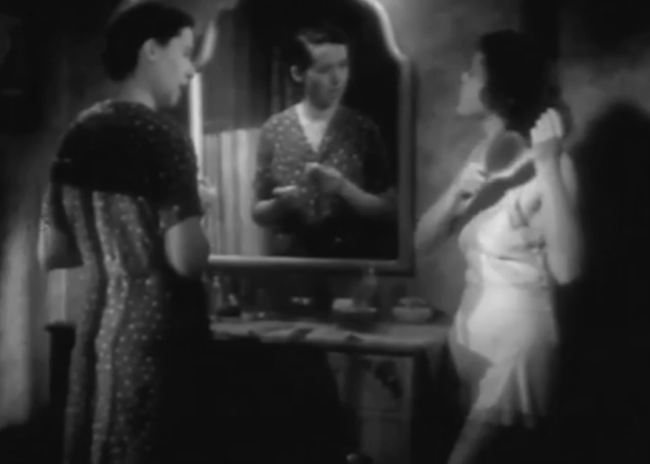
- There’s a joke about constipation that modern audiences really aren’t going to get, but Cliff explains it over on his excellent review.
The Night Of June 13: June Bugs
“I’m telling you, Mr. Man, something is going to pop over on that street one of these days, just as sure as you’re knee-high to a duck!”
Is it weird that I was genuinely surprised by the setting of The Night of June 13th? I suppose I’ve seen so many old movies set in mansions or tenement buildings that I (hopefully) can be forgiven to overlook the suburban sprawl that existed by the 1930s.
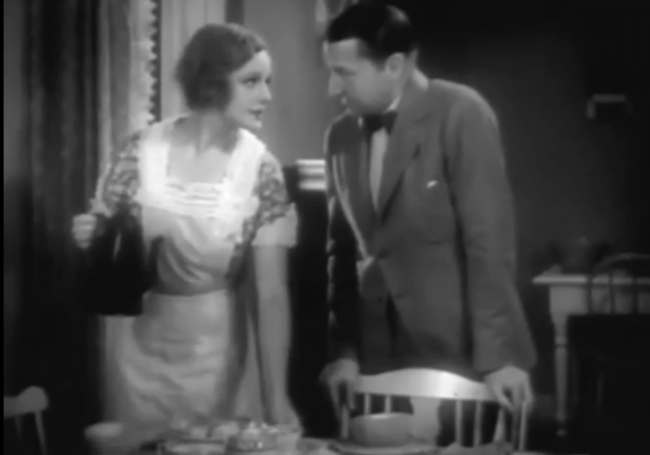
Set in a small town outside a big city, the stately street of Laurel Avenue is the home a quartet of families with various domestic issues, love affairs, aspirations, each are alike in their dignities, etc, etc. I did debate myself whether or not it’s worth going into all of this, but the first 40 minutes are just a series of parries and thrusts between all of these characters.
- First are the Strawns. Grandpop (Grapewin) is the nominal audience surrogate as he bums around, causing mischief and trying to nick some change from his neighbors to take down to the local speakeasy for a few beers. He lives with his son Philo (Ruggles), mischievous grandson Junior (Butts), and meddlesome daughter-in-law Mazie (Boland).
- Speaking of meddlesome, down the way are the Morrows, all harried by their mother (Ware). She enjoys shaming daughter Trudie (Lee) and absolutely pestering son Herbert (Raymond). She feels superior to the rest of her neighbors and heads the local temperance league.
- Then there are the dirt poor Blakes, with Ginger (Dee) being in love with Herbert but squirming under his mother’s withering condescension which causes Herbert to drink to excess.
- Last are the Currys, a pair of British expats struggling after wife Elna’s car accident that derailed her career as a concert pianist. Elna (Allen), with nothing else to occupy her time, becomes crazed with jealousy as her husband John (Brook) appears to be having a romance with neighbor Trudie. John’s inability to even try and see anything from his wife’s perspective leads him to constantly being extremely suspicious in everything he does, which only causes the situation to spiral out of control.
Watching these interactions play out with a naturalistic if stagey bent is genuinely pleasant. Each character is well-defined, each with their own flaws and needs. And there’s a lot you can do with this kind of ensemble setup– turning it into an emotional tragedy about broken hearts or the way your location defines the kind of life you lead are both valid possibilities.
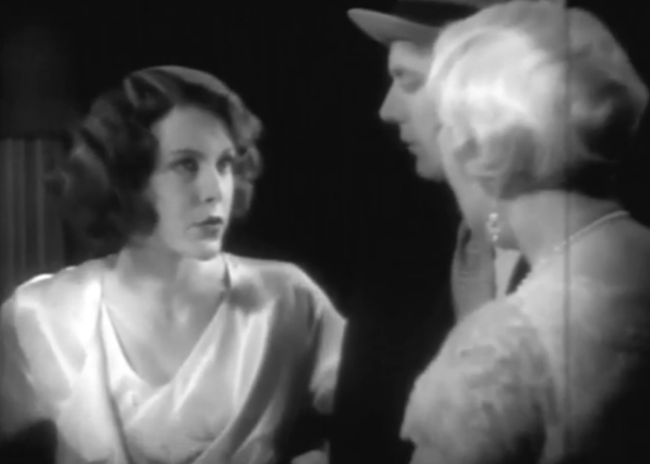
The Night of June 13th goes for the left-field option of a murder trial, here contrived so that John discovers his wife’s suicide and stupidly makes such a mess of things that he looks as if he pulled the trigger. (Not intentionally, John really is the dumbest character here and there are no apologies for it.) A number of his neighbors have information that would exonerate him, but at the trial they all perjure themselves, either out of cowardice, pride, or greed. When all hope looks lost for John, we get not one, not two, but three full surprise witnesses who step forward to reveal one another’s lies.
Spoilers.
I’m spoiling the ending here in particular because I read several reviews on Letterboxd that didn’t seem to understand quite what happens because the movie really fucking fumbles it. Mind you, 30 out of the film’s 70 minutes are dedicated to the courtroom trial, which mostly stands to showcase the other neighbors’ perjuries and their various motivations.
At the end, Grandpop takes the stand and claims that he saw John at the train station, proving that John wasn’t present when the gun was fired and creating just enough confusion to get the jury to acquit. Now, Grandpop is committing perjury here, too, but it’s the good kind so John gets off.
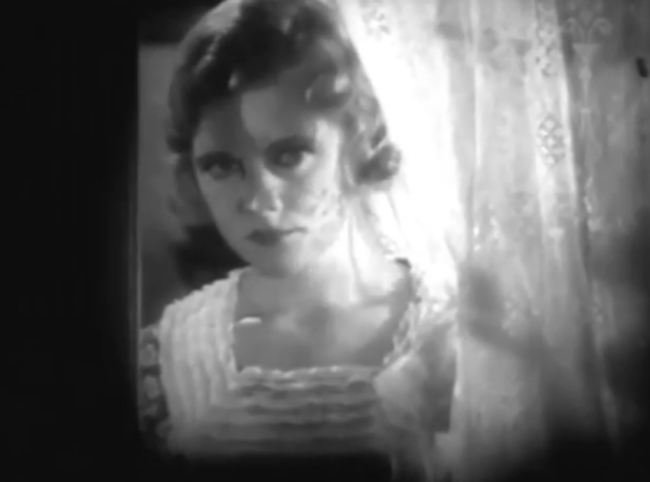
This is all hamfistedly rushed through– seriously, surprise witness #1 would have been enough to call for a mistrial, let alone the others who pop up– and doesn’t really make a lick of sense that his testimony fixes things when Grandpop was already an unreliable witness on the stand. But, then again, the whole trial is contrived and the movie begins to buckle as soon as it begins.
This contrivance means wringing any meaning out of the film is a flimsy task. There are too many disparate plot threads here that having Clive Brook glowering behind a desk in courtroom can’t fix, and it really hijacks the film from something quieter and more touching to just another court movie, one with no tension or interest.
One thing I do like in just how things are resolved is that justice is found, albeit through lies and deceit. During this time there was a big fight over whether films should be depicting courts as fallible, with the law-and-order crowd insisting that making movies where government officials are corrupted or the process of law subverted would lead to a massive loss of faith in institutions. As dumb as the courtroom stuff is in this film, it at least plays it on its own terms, happy to illustrate that people are selfish and justice can really only be found in aligning everyone’s selfishness into the right directions.
End spoilers.
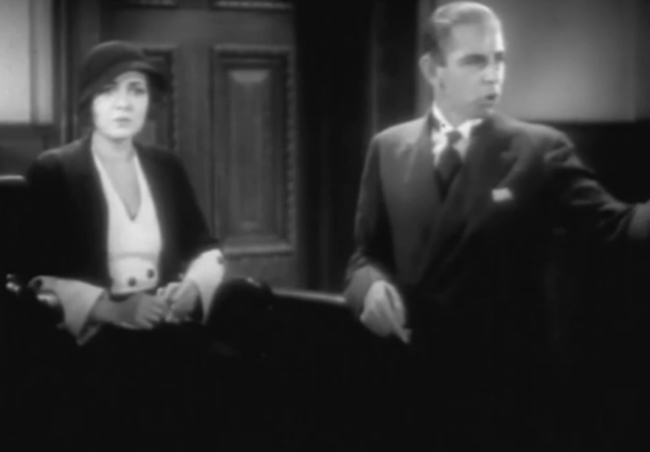
Clive Brook is the nominal star of the film– Shanghai Express was only a few months earlier on top of his other lead roles at Paramount– and his attempts to play charming and light don’t land at all. This guy belongs as much in an American suburb as he would belong as the King of Mars.
Frances Dee and Gene Raymond get little to do. Mary Boland and Helen Ware are both fun as the pushy moms who make everyone miserable but get their comeuppance. The best that can be said for his minimal role is that Charlie Ruggles has one really nice cardigan. Charley Grapewin’s performance as Grandpop is probably the highlight of the film, as it is light but thoughtful and enjoyable to follow.
What begins as a nice ensemble drama is a mess by the end, but The Night of June 13th does have a solid start and some fun bits and pieces. But, like so many suburban dreams, the closer you look, the less there is to like.
More Images
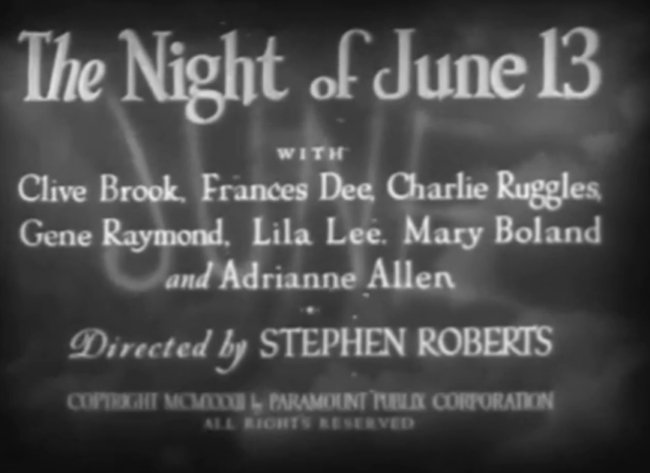
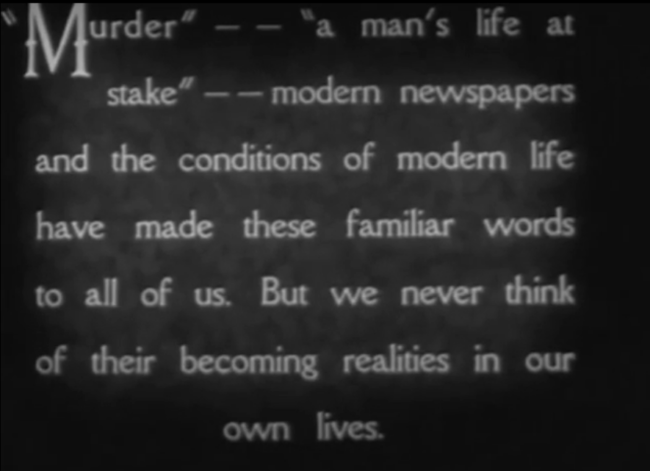
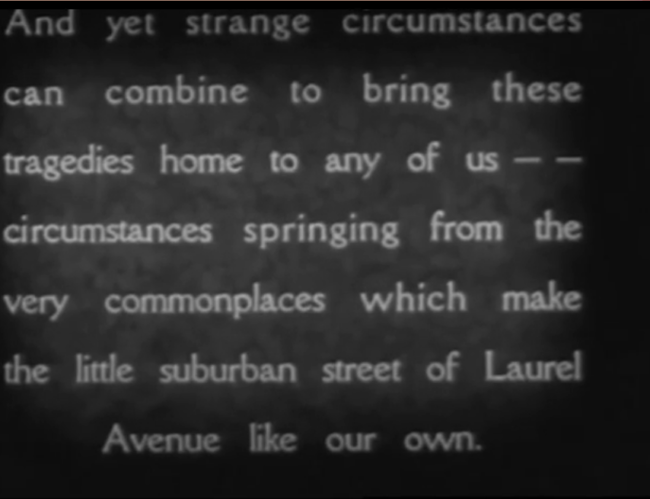
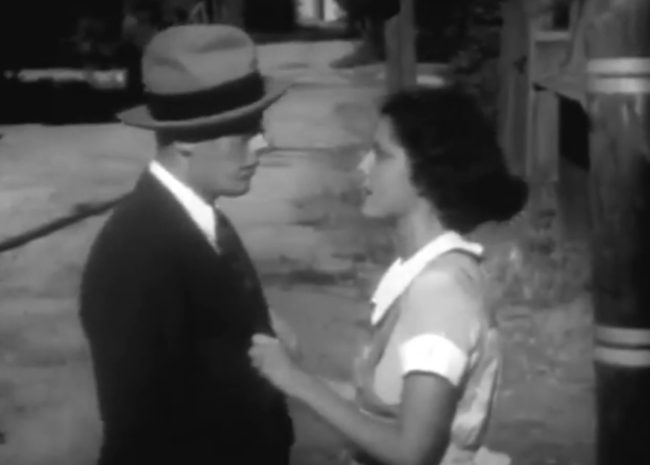
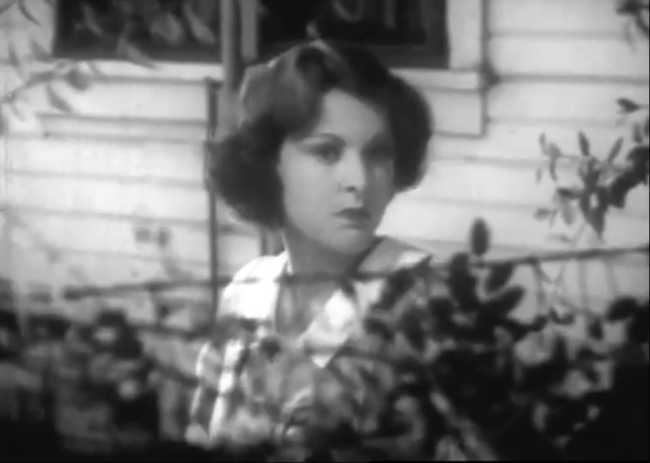
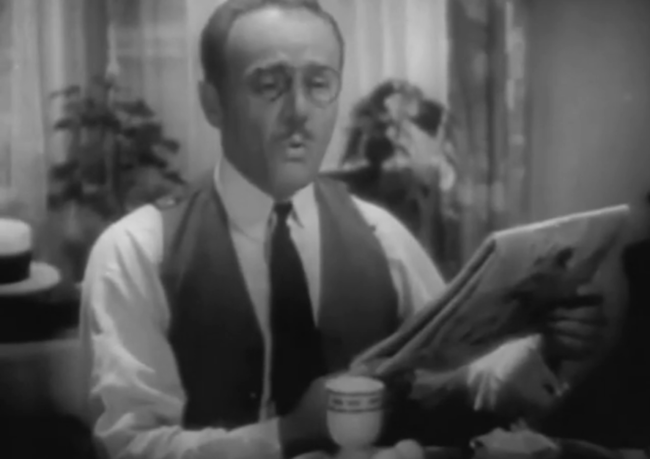
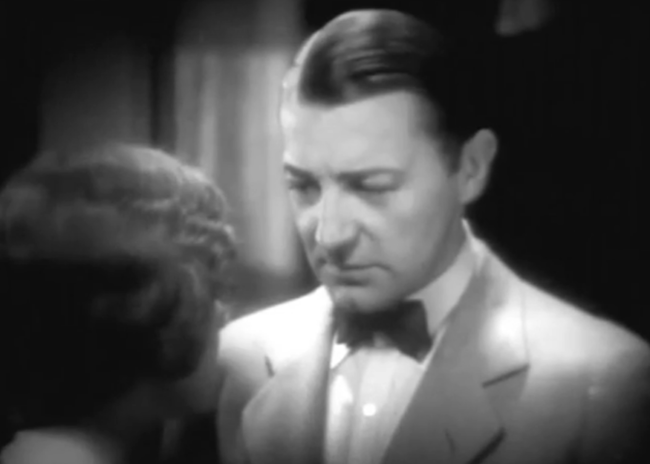
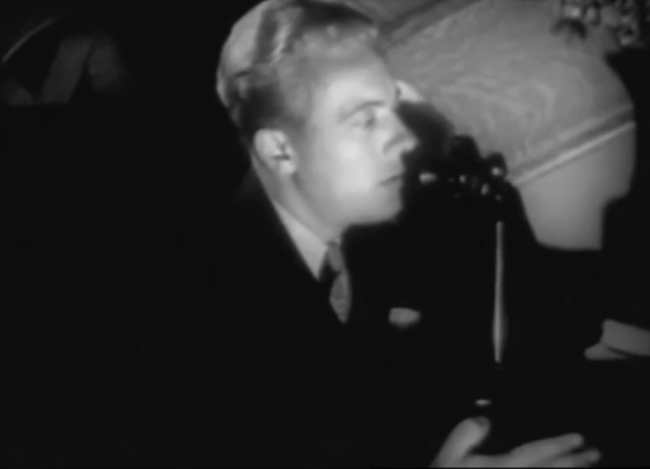
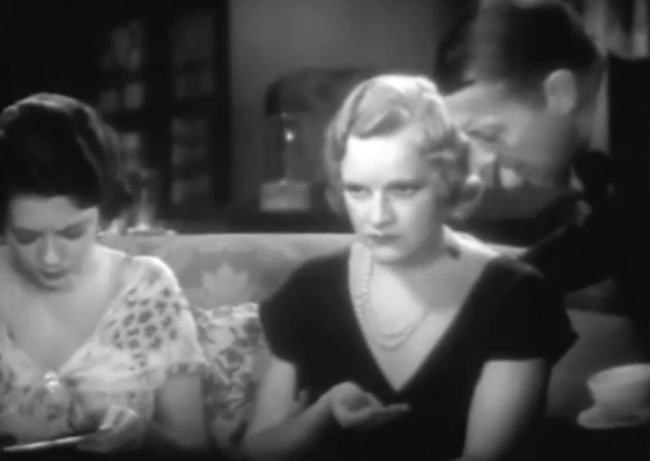
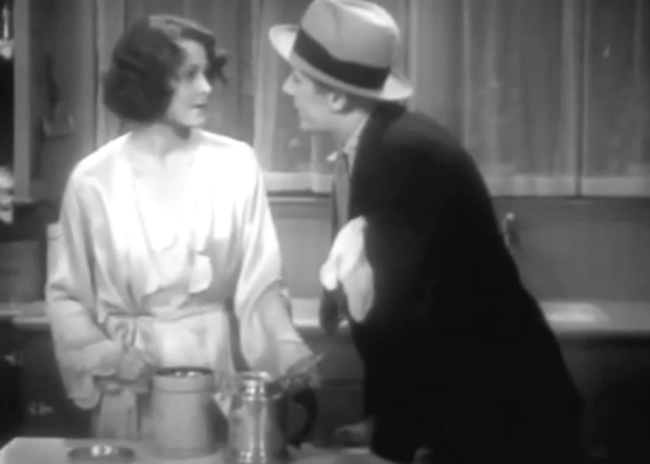
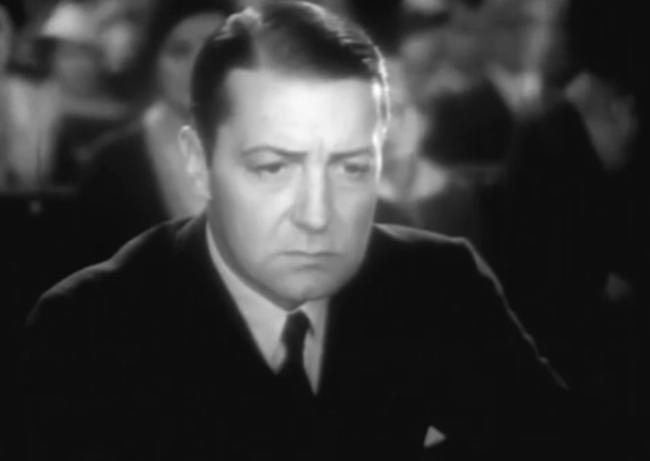
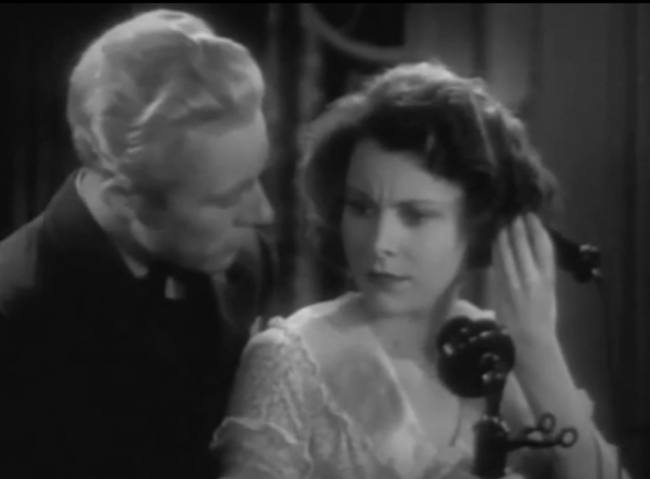
Trivia, Miscellany & Links
- Based on the short story “Suburbs” by Vera Caspary. Caspary’s work would also serve as the basis for several other noirs, including Laura and The Blue Gardenia.
- This film features the first of 14 pairings of Charlie Ruggles and Mary Boland throughout the 1930s, which would include one of my favorite films, The Ruggles of Red Gap.
- Related Frances Dee promo in Photoplay:
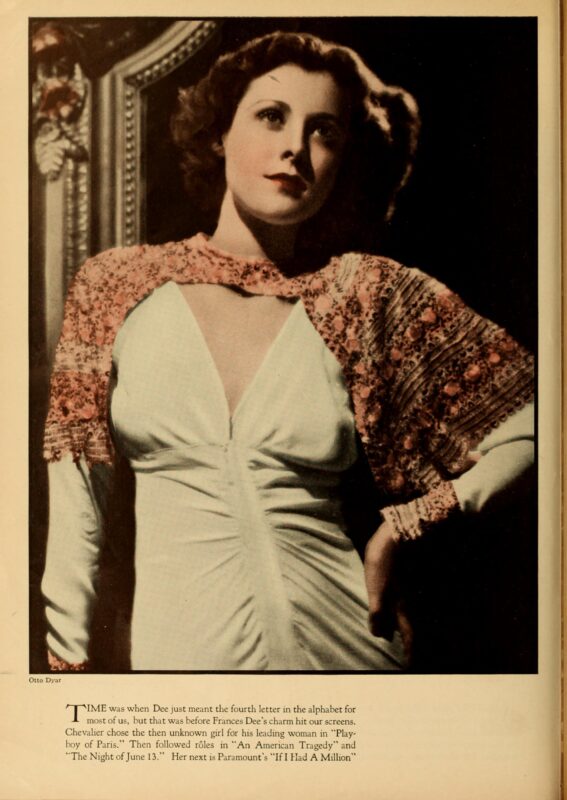
- Mordaunt Hall in the New York Times notes, “Its chief virtue is that it is different from the ordinary run of films and although Stephen Roberts, the director, is not strong on humor, he often presents his scenes with a gratifying vein of imagination.”
- A behind-the-scenes shot from Home Movies and Home Talkies. (I guess the man in the center is doing The Twist for the jury?!)
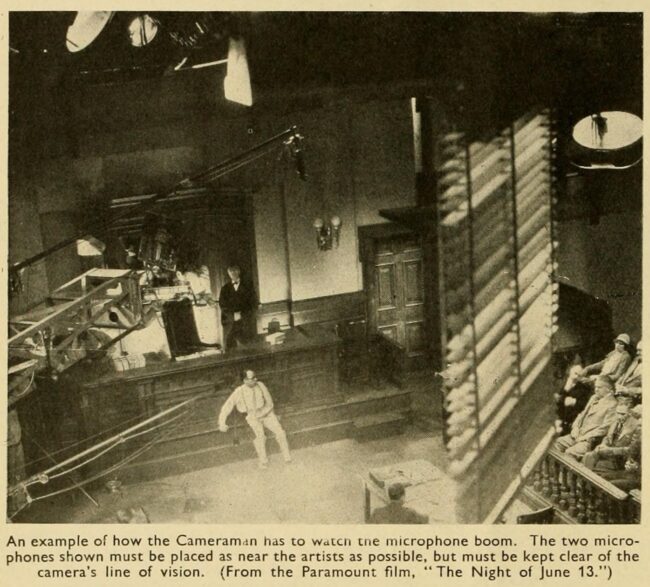
- Further links:
What is Pre-Code?
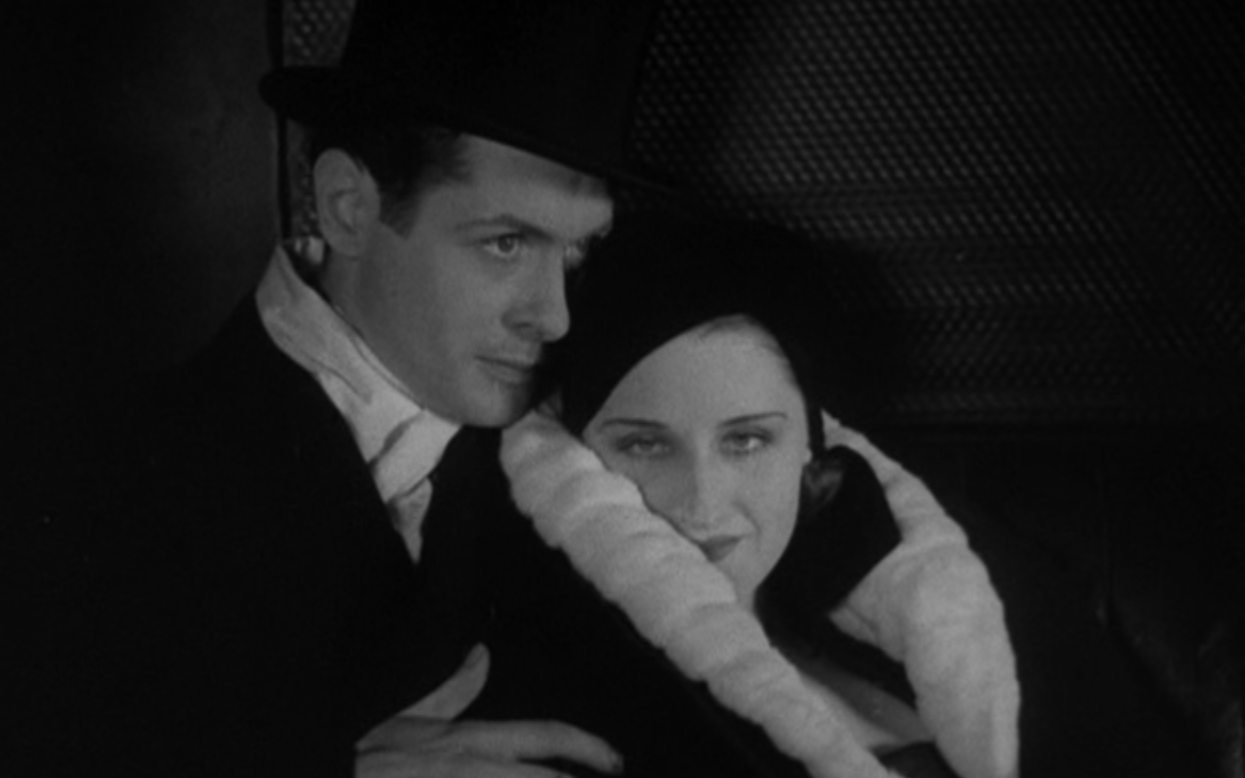
Click to learn more about pre-Code Hollywood, 1930-4, when movies were sexy, smart and sophisticated.
Index of Film Reviews
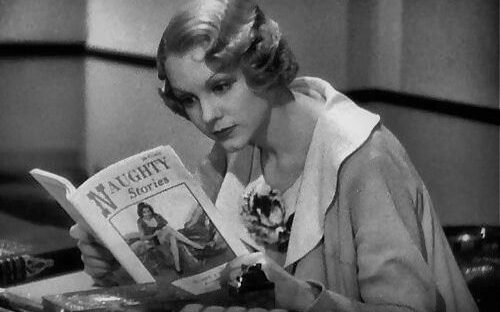
Browse all of the movie reviews on the site as well as schedules and pages that detail the world of pre-Code.
Explore the Pre-Code Era
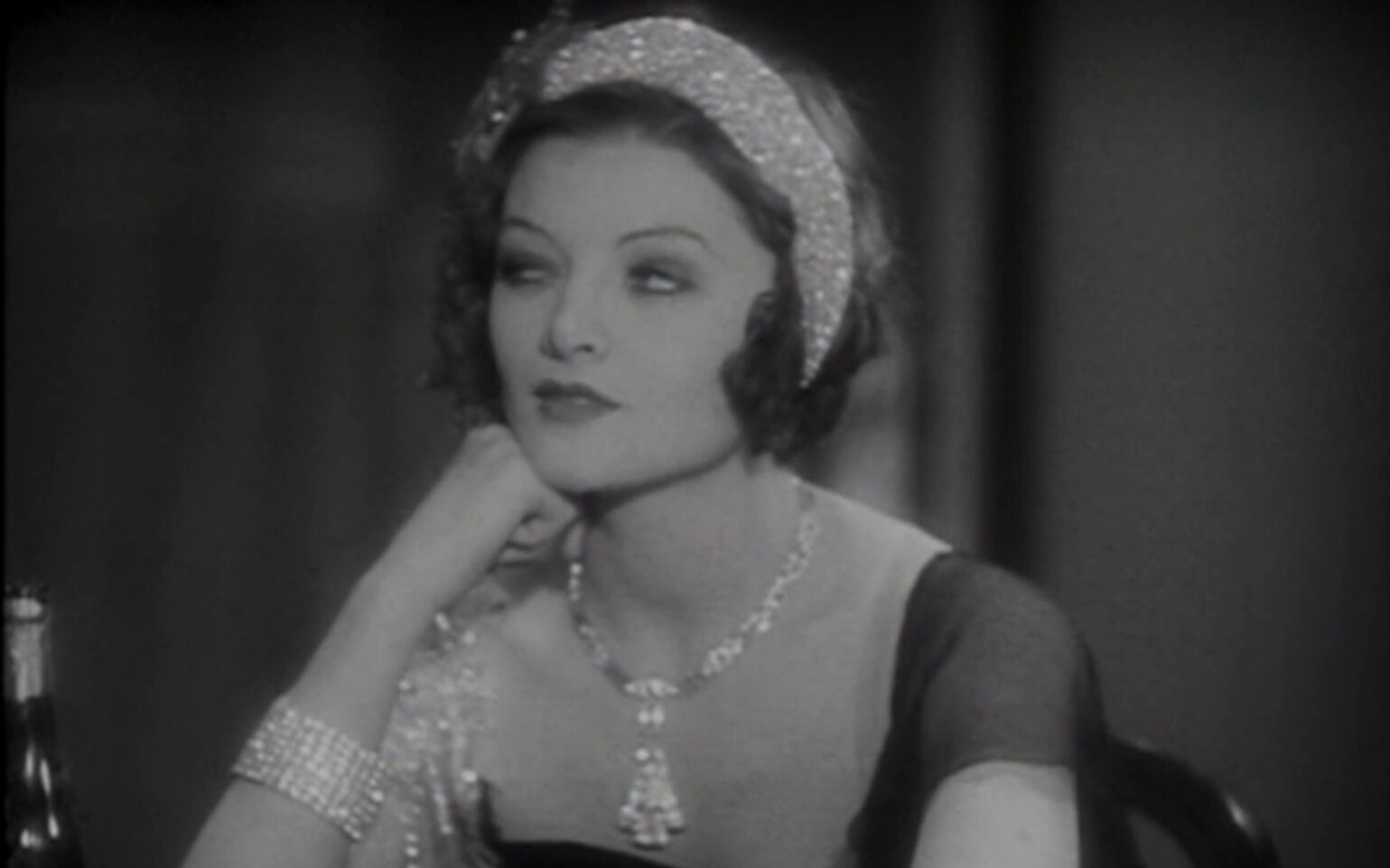
Dig through the pre-Code era through its highlights, its biggest hits, its essential films, and more.


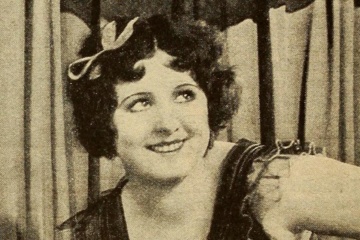
2 Comments
HarlowGold · June 14, 2024 at 5:05 am
I love your page and your film reviews, a delight! Thank you for tracking down these marvelous precodes!!
ahmedyar1930s · June 14, 2024 at 5:07 am
Off topic, but i really want you to review and see your opinion about one of the bloodiest pre-Code films I’ve ever seen, “TERROR ABOARD (’33)”. It’s such an ultraviolent shocker production! I hope you’d consider reviewing it soon!
As for this one “June 13”, It really started promising and had a lot of potentials but all these and the good ideas could have used were sidelined for the sake of the suicide and courtroom drama… So unfortunate it lost its way cause really it was a bit of fresh setting after watching series of urban-setting high-class drama films, mansions and…etc. Nonetheless, still a very enjoyable film!
Comments are closed.